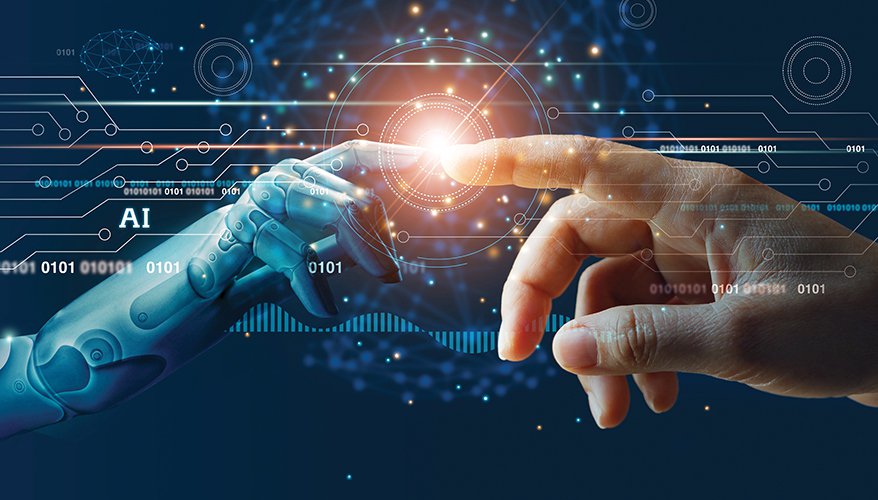Tuesday, June 24, 2025
The Ethics of Artificial Intelligence: Navigating Power and Responsibility

The Rise of Intelligent Machines
Artificial intelligence is no longer just a concept from science fiction — it’s embedded in our daily lives. From recommendation systems on streaming platforms to voice assistants in our homes, AI systems are shaping how we interact with the world. As the technology continues to advance, it is also taking on more critical roles in healthcare, education, law enforcement, finance, and even warfare. This growing influence has raised urgent questions about ethics. How should AI be developed, used, and governed in ways that reflect human values and protect individual rights?
Bias and Fairness in AI Systems
One of the most widely discussed ethical concerns in AI is bias. AI systems learn from data, and if that data reflects historical inequalities, stereotypes, or imbalances, the AI can reinforce or even amplify those biases. For example, facial recognition systems have been shown to perform less accurately on people of color. Hiring algorithms might favor male candidates if trained on past hiring data that was skewed. These examples show how AI can unintentionally become a tool for discrimination if not carefully designed and tested. Fairness in AI isn’t automatic — it requires conscious effort to ensure systems treat all users equally.
Transparency and Explainability
Another major ethical issue is the lack of transparency in how many AI systems make decisions. Complex models, especially deep learning systems, can operate as "black boxes," offering predictions or actions without clear reasoning. This becomes especially problematic in high-stakes contexts like healthcare or criminal justice, where people deserve to understand the logic behind decisions that affect their lives. Explainability — the ability to interpret and understand how an AI arrived at a conclusion — is critical for building trust and ensuring accountability. Without it, users are left in the dark and developers are less able to detect and correct errors.
Privacy and Surveillance
AI thrives on data — and that often includes personal data. Whether it’s a recommendation engine learning your viewing habits or a predictive policing tool analyzing city-wide activity, AI systems require large volumes of information to operate effectively. This raises serious concerns about privacy. If data is collected without consent, stored insecurely, or shared irresponsibly, users can be exposed to harm. Even well-meaning uses of AI, like contact tracing apps during a pandemic, must balance public benefit with the right to privacy. Ethical AI must respect boundaries, minimize data usage, and give users clear control over how their information is used.
Autonomy and Control
As AI becomes more capable, it increasingly takes on decision-making roles once held by humans. While this can improve efficiency, it also raises questions about autonomy and control. Should a self-driving car be allowed to make life-or-death decisions in a crash scenario? Can a drone legally and ethically carry out a military strike without direct human input? These are not just technical questions — they’re moral ones. Human oversight and responsibility must remain at the center of AI deployment, especially when lives, rights, or freedoms are at stake. Technology should support human agency, not replace it.
Accountability and Responsibility
When AI systems cause harm or make a mistake, it’s often unclear who is responsible. Is it the developer who wrote the code, the company that deployed it, or the user who relied on it? This lack of clear accountability can lead to serious ethical and legal challenges. Without frameworks that clearly define who is answerable for AI outcomes, people may be harmed without recourse. Ethical AI development must include accountability structures, documentation, and testing. Governments and institutions are beginning to explore these ideas through legislation and policy, but much work remains to be done.
Ethical Design and Inclusive Development
One way to reduce harm is to build ethics into the design process from the start. This means involving diverse voices in AI development — not just engineers, but also ethicists, social scientists, and affected communities. When technology is created by narrow groups, it tends to reflect narrow perspectives. Inclusive design ensures that AI systems serve broader societal needs and avoid causing harm to marginalized populations. It also helps uncover risks that might otherwise go unnoticed. Ethics should not be an afterthought or a compliance checkbox. It should guide every stage of AI development, from data collection to deployment.
Regulation and the Role of Policy
To truly embed ethics in AI, we need more than good intentions — we need strong policies and legal frameworks. Governments and international bodies are beginning to take action, proposing regulations that set standards for safety, transparency, and fairness. The European Union’s AI Act is one example, aiming to categorize AI systems by risk and impose stricter rules on higher-risk applications. But regulation must strike a balance between innovation and protection. If laws are too strict, they could stifle beneficial progress. If too loose, they could allow dangerous technologies to spread unchecked. The goal should be responsible innovation — one that empowers progress while safeguarding human rights.
Conclusion
Artificial intelligence holds incredible promise, but it also brings serious ethical challenges. From bias and privacy to accountability and autonomy, the questions we face are complex and urgent. Addressing these issues will require cooperation between technologists, policymakers, and the public. It will mean rethinking how we design, test, and deploy AI — not just for efficiency, but for fairness, safety, and respect. The future of AI is not just about what machines can do. It’s about what we choose to do with them, and whether those choices reflect the best of our values. Ethics isn’t a barrier to AI’s progress — it’s the foundation for a future we can all trust.